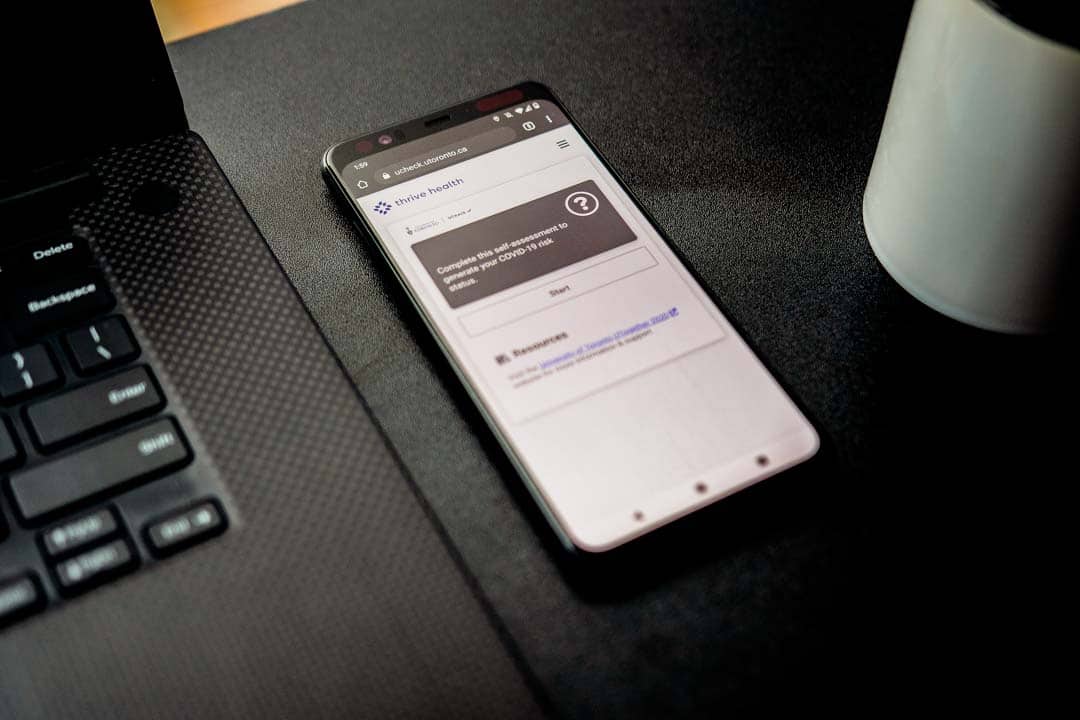As some classes move to an in-person format, community members continue to voice concerns about the effectiveness of U of T’s vaccine mandate. Many believe that U of T should check community members’ proof of vaccination whenever they come on campus, instead of only checking in certain spaces. While students are asked to complete a UCheck form any time they go to campus, most buildings and classrooms do not check UCheck statuses before allowing students to enter.
Critics have noted that U of T’s justification for not implementing capacity limits or physical distancing — which is the vaccine mandate — is less effective when vaccination status is not consistently checked.
In an interview with The Varsity, Kelly Hannah-Moffat, U of T’s vice-president people strategy, equity and culture, said that she is confident the university has created a safe campus environment for the return to in-person learning.
Gaining immunity
In response to these criticisms, Hannah-Moffat stated in an interview with The Varsity that the university’s strategy has to be contextualized by the fact that 99 per cent of those who have filled out UCheck forms are fully vaccinated or are on their way to being fully vaccinated. According to the university, 72,000 students, librarians, faculty, and staff had submitted their UCheck forms as of September 21.
Since this is the case, the administration has decided that checking community members’ UCheck when they come on campus is not necessary, though Hannah-Moffat noted that individual departments and instructors are free to do so.
In response to a question about what the university has been doing to combat the forgery of vaccination documents, Hannah-Moffat said that, as with academic integrity matters, the university “[believes] in the integrity of people” and that they will upload valid documents.
Overall, she said that the university is confident it has created a safe environment for students on campus, adding that it’s incredibly important for students to get back to in-person learning.
Checking UCheck
UCheck is how the university is asking for proof of vaccination status, with students being asked to submit proof of vaccination or get tested before coming to campus, and fill out a questionnaire.
In an email to The Varsity, University of Toronto Faculty Association (UTFA) President Terezia Zorić wrote that, in conversation with the UTFA’s members, it has determined key spots of concern regarding U of T’s reopening strategy.
These concerns include that most buildings don’t have security personnel checking vaccination status, students who haven’t filled out UCheck are still being allowed on campus, and individuals with easily altered paper UCheck forms are being allowed to enter libraries.
Zorić added that the university claims it cannot afford security personnel whenever pushed on the topic.
Zorić noted that these observations were distressing for community members because the university has omitted other measures, such as capacity limits and physical distancing, because of its “heavy reliance on a deeply flawed proof of vaccination strategy.”
Similarly, Sherri Helwig, an arts, culture and media professor at UTSC, wrote in an email to The Varsity that the university seems to have relaxed certain security measures since the vaccine mandate was placed into effect.
She elaborated that until August 2021, there were check-in desks across UTSC, where community members were required to show their TCard or scan a QR code for contact tracing purposes. On August 20, U of T announced that these desks would be removed, and that community members would not be required to check in as of August 23.
Helwig agreed with Zorić that the university’s current vaccine policy was effectively no different than its previous one, which asked all community members to self-report their vaccination status. “In both cases, there is no way to know, no way to trust, that the people sharing the same air have followed the rules,” Helwig wrote.
Helwig and Zorić also said that the vaccine mandate was essentially useless if no one was checking it at all campus access points. “People are rightfully angry and upset that campus reopening plans lack effective safety protocols and do not align with the advice of U of T’s public health scientists,” Zorić concluded.
— With files from Lauren Alexander


